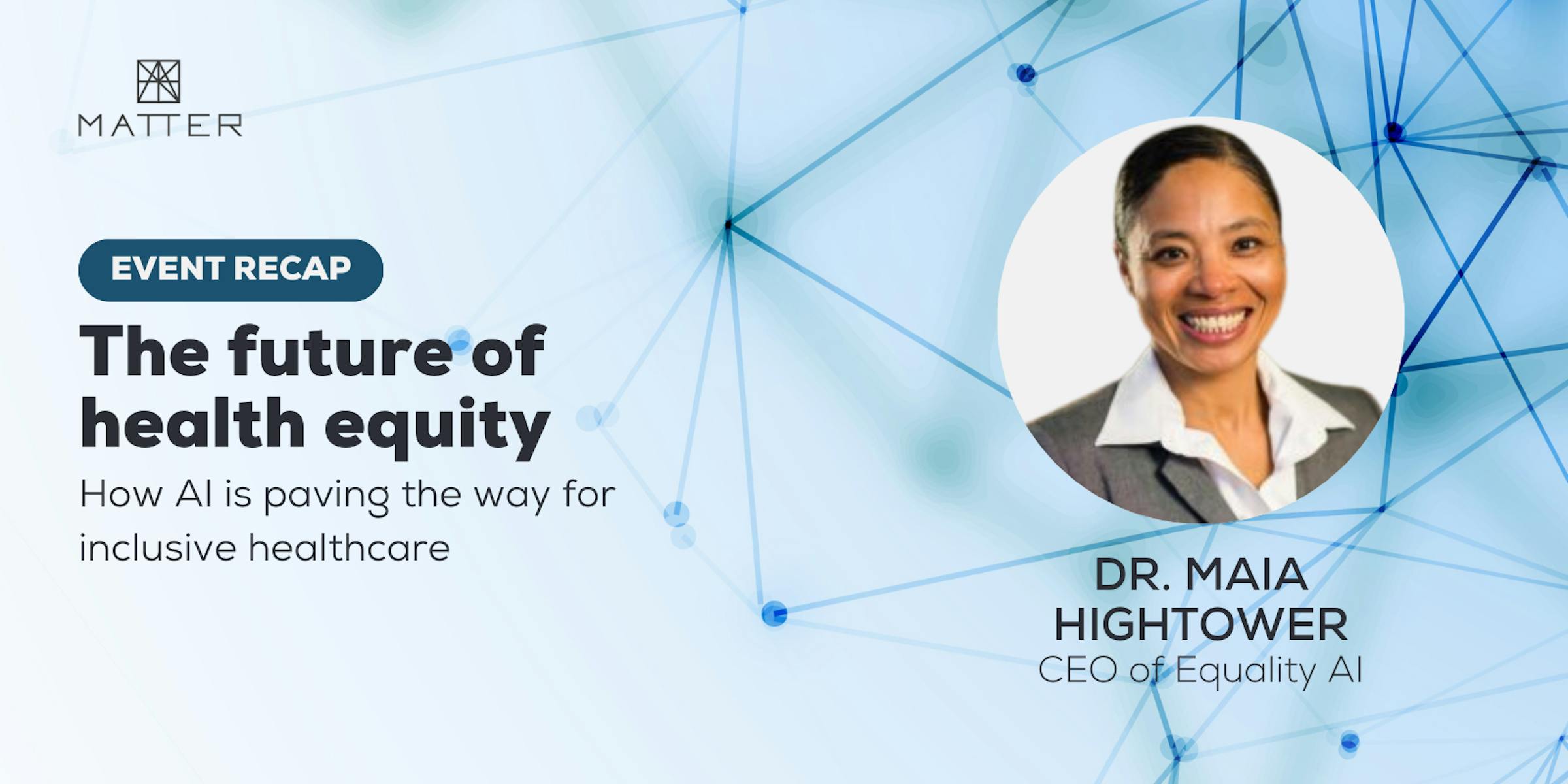The future of health equity: How AI is paving the way for inclusive healthcare, according to Dr. Maia Hightower
With the introduction of artificial intelligence (AI) and ChatGPT into the healthcare ecosystem, there has been a significant impact on health equity, particularly in access to healthcare, data and analytics, addressing embedded biases and improving diagnosis and treatment planning.
In a conversation with MATTER CEO Steven Collens, Dr. Maia Hightower, the CEO of Equality AI and former Chief Digital Transformation Officer of the University of Chicago Medicine, explored how AI has played a transformative role in addressing and reducing health disparities among historically marginalized communities. She also discussed innovative strategies to close the gap.
With over 20 years of experience in the healthcare industry, practicing medicine and helping to run health systems, Dr Hightower is a true expert in AI and health equity. Read on for key takeaways from the conversation.
Insight One: The healthcare industry currently stands at an AI inflection point.
“We’re at this crossroads where we can use this existing AI technology for bias detection mitigation and go in one of two directions,” Dr. Hightower says. “We can ignore these methods and potentially exacerbate health inequities at-scale, or we can use what we’ve already learned and address these inequities and create better models that work for everyone.”
The impact of this decision extends beyond the immediate healthcare system. If bias in AI tools remains unchecked, entire populations could face long-term consequences, such as inaccurate diagnoses, unequal access to treatments and broader gaps in health outcomes. By acting now, the healthcare industry has the opportunity to set a global precedent for AI development that prioritizes equity, ensuring that the benefits of innovation are shared across all demographics.
Insight Two: AI presents unique risks compared to traditional healthcare technologies.
“One of the challenges with AI is that the technology is a little different than your traditional software,” Dr. Hightower says. “The capability of identifying AI risk — that you have to evaluate in addition to the standard risks associated with any application or new solution — is a challenge that health systems will continue to need to evolve.”
Among these risks are health inequities, algorithmic bias, intellectual property concerns and security vulnerabilities, all of which require careful consideration as AI adoption grows in healthcare.
Insight Three: AI governance in healthcare is evolving alongside AI technology.
Effective AI lifecycle management now demands new competencies beyond what traditional tech governance frameworks have required. Ensuring AI technologies are strategically aligned, HIPAA-compliant and meet organizational compliance standards is crucial.
“Within healthcare, standards around AI lifecycle management have been proposed by the Coalition for Health AI as well as other health systems that have been iterating upon their AI governance structures,” Dr. Hightower says.
Watch the full event below to learn more about the future of AI and health equity.
About MATTER
At MATTER, we believe collaboration is the best way to improve healthcare. The MATTER collaborative includes more than 1,000 current and alumni startups from around the world, working together with dozens of hospitals and health systems, universities and industry-leading companies to build the future of healthcare. Together we are accelerating innovation, advancing care and improving lives. For more information, visit matter.health and follow @MATTERhealth.




